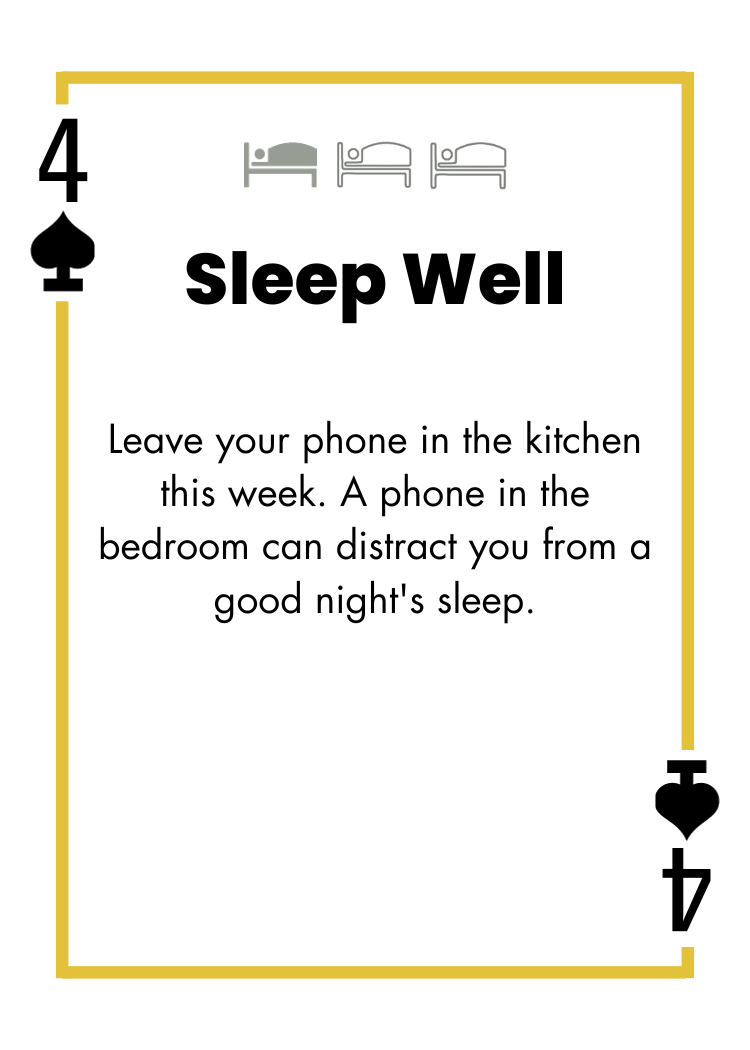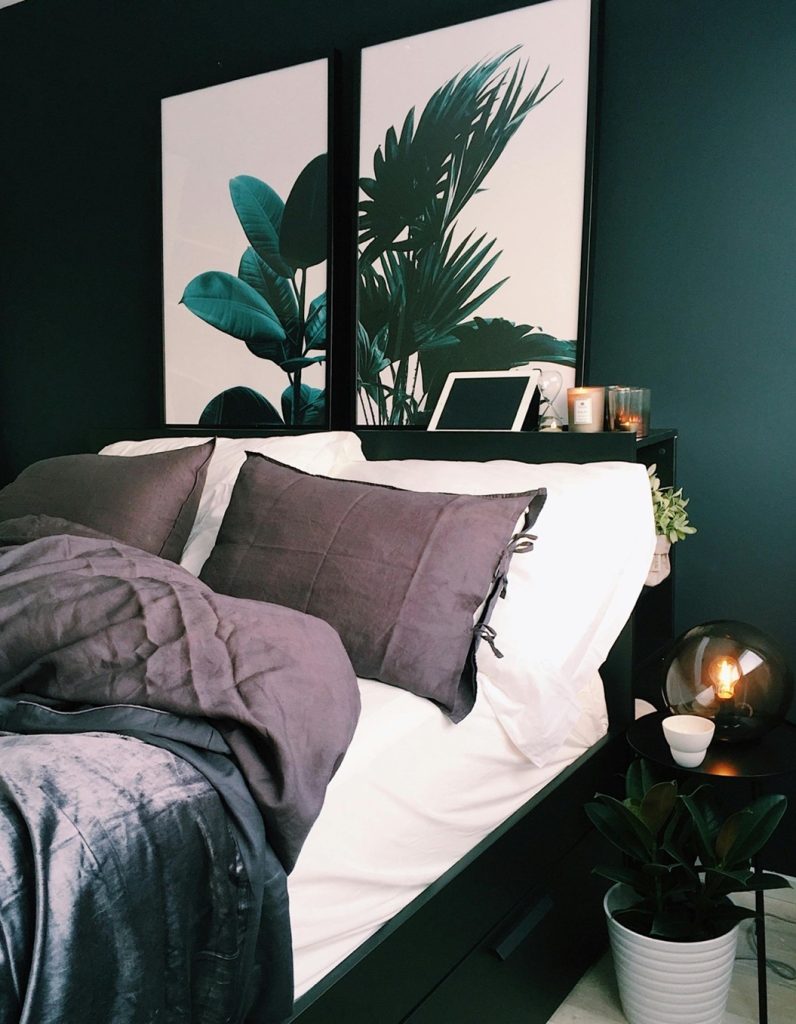4 of Spades - Bedtime Mode

The greatest treatment for long term advancement of sleep is behaviour modification to include healthy sleep fostering routines. Sleep hygiene refers to behavioural, lifestyle and environmental interventions around bedtime and during the day which positively influence sleep quality and duration (Baranwal et al., 2023).
The main points to understand about sleep hygiene are 1. poor sleep hygiene negatively influences both sleep quantity and quality, 2. good sleep hygiene usually includes setting a strict sleep schedule, following a structured bedtime routine, establishing healthy habits, and optimising your bedroom environment for sleep and 3. sleep hygiene on its own will not heal serious sleep problems, therefore, ensure you contact a medical professional for assistance (Suni and Rosen 2024).

The first easy step to take is suspend using the phone at least 30 minutes before bedtime. Nowadays there are many features and functions on smartphones that cater for the reduction of blue light and notifications, including the introduction of Bedtime modes.
Explore your phone’s features for step 1 of this handy tip.
If you’re still getting distracted (and it’s easy to be!) charge your phone in a different room for a week and see your sleep scores rocket.
Here is an extensive list of some helpful sleep hygiene tips: https://www.sleepfoundation.org/sleep-hygiene/healthy-sleep-tips
One of our expert sleep coaches can help you adjust your sleep cycle, train you on your smartphone features and perfect your optimal sleep hygiene routine. Book in today to find those 1% changes and boost your sleep score.
Securing healthy sleep is vital for both physical and mental health as it improves overall quality of life. All people at any age can benefit from better sleep. Sleep hygiene strategies can be a valuable ally in achieving the goal of better sleep. Substantial research demonstrates forming good habits is a central part of maintaining good health. Installing sustainable and beneficial routines as a part of one’s life makes healthy behaviours feel almost unconscious which creates a feedback loop of positive reinforcement. Unfortunately, bad habits can become firmly entrenched despite them ultimately causing negative consequences (Suni and Rosen 2024).
Various lifestyle factors contribute to poor sleep conditions because they are believed to disrupt day/night (circadian) rhythms. Circadian rhythms are believed to be vital to our physiologic functions which include sleep. The most apparent lifestyle factors affecting sleep quality in sleep literature include caffeine consumption, cigarette smoking, electronic media exposure, exposure to bright lights during dark night hours, and timing of sleep (Golem et al. 2014).
Golem et al. 2014, in a review paper, present and review evidence supporting the connections between these lifestyle factors and poor sleep. Sleep is fundamental to health and well-being and is also highly associated with weight status and dietary intake. The authors say it is important for nutrition professionals to promote good sleep hygiene, especially as a part of a healthy lifestyle and to help with weight management. Additionally, the authors say bedtime routines help prepare the body and mind for sleep so guiding patients or clients through the development of relaxing bedtime routines is also very important. These routines may include elimination of or reduction in caffeinated foods and beverages, calming activities, setting a regular bed/wake time and creating a comfortable, dark, and quiet sleep environment.
Small changes CAN make a big difference – that’s what The 1% Club is all about.
Baranwal, N., Phoebe, K. Y., and Siegel, N. S. (2023). Sleep physiology, pathophysiology, and sleep hygiene. Progress in cardiovascular diseases, 77, 59-69.
Golem, D. L., Martin-Biggers, J. T., Koenings, M. M., Davis, K. F., and Byrd-Bredbenner, C. (2014). An integrative review of sleep for nutrition professionals. Advances in nutrition, 5(6), 742-759.
Suni, E., and Rosen, D. (2024, March 4). Mastering sleep hygiene: Your path to quality sleep. Sleep Foundation. https://www.sleepfoundation.org/sleep-hygiene
Suni, E., and Singh, A. (2023, December 8). 20 tips for how to sleep better. Sleep Foundation. https://www.sleepfoundation.org/sleep-hygiene/healthy-sleep-tips


 See Other Cards!
See Other Cards!